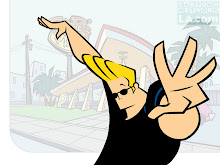Marcos v. Manglapus
FACTS:
It is a case of a dictator President Ferdinand Marcos of the Philippines forced out of office and into exile after causing twenty years of political, economic and social havoc in the country and who within the short space of three years seeks to return to the Philippines to die.
But Mrs. Aquino, considering the dire consequences to the nation of his return at a time when the stability of government is threatened from various directions and the economy is just beginning to rise and move forward, has stood firmly on the decision to bar the return of Mr. Marcos and his family.
Issue: 1 .Whether or not the ban of Mr. Marcos and family from returning to the Philippines has international precedents?
2. Whether or not the President acted in grave abuse of discretion in determining the return of the Marcoses?HELD:
NO, The right to return to one's country is not among the rights specifically guaranteed in the Bill of Rights, which treats only of the liberty of abode and the right to travel, but it is our well-considered view that the right to return may be considered, as a generally accepted principle of international law and, under our Constitution, is part of the law of the land [Art. II, Sec. 2 of the Constitution.]
However, it is distinct and separate from the right to travel and enjoys a different protection under the International Covenant of Civil and Political Rights, i.e., against being "arbitrarily deprived" thereof [Art. 12 (4).]
The Declaration speaks of the "right to freedom of movement and residence within the borders of each state" [Art. 13(l)] separately from the "right to leave any country, including his own, and to return to his country." [Art. 13(2).]
On the other hand, the Covenant guarantees the "right to liberty of movement and freedom to choose his residence" [Art. 12(l)] and the right to "be free to leave any country, including his own."
[Art. 12(2)] which rights may be restricted by such laws as "are necessary to protect national security, public order, public health or morals or enter qqqs own country" of which one cannot be "arbitrarily deprived." [Art. 12(4).]
It would therefore be inappropriate to construe the limitations to the right to return to one's country in the same context as those pertaining to the liberty of abode and the right to travel.
2.NO.The President did not act arbitrarily or with grave abuse of discretion in determining that the return of former President Marcos and his family at the present time and under present circumstances poses a serious threat to national interest and welfare and in prohibiting their return to the Philippines.
The power involved is the President's residual power to protect the general welfare of the people. It is founded on the duty of the President, as steward of the people.
Petition is Dismissed

No comments:
Post a Comment